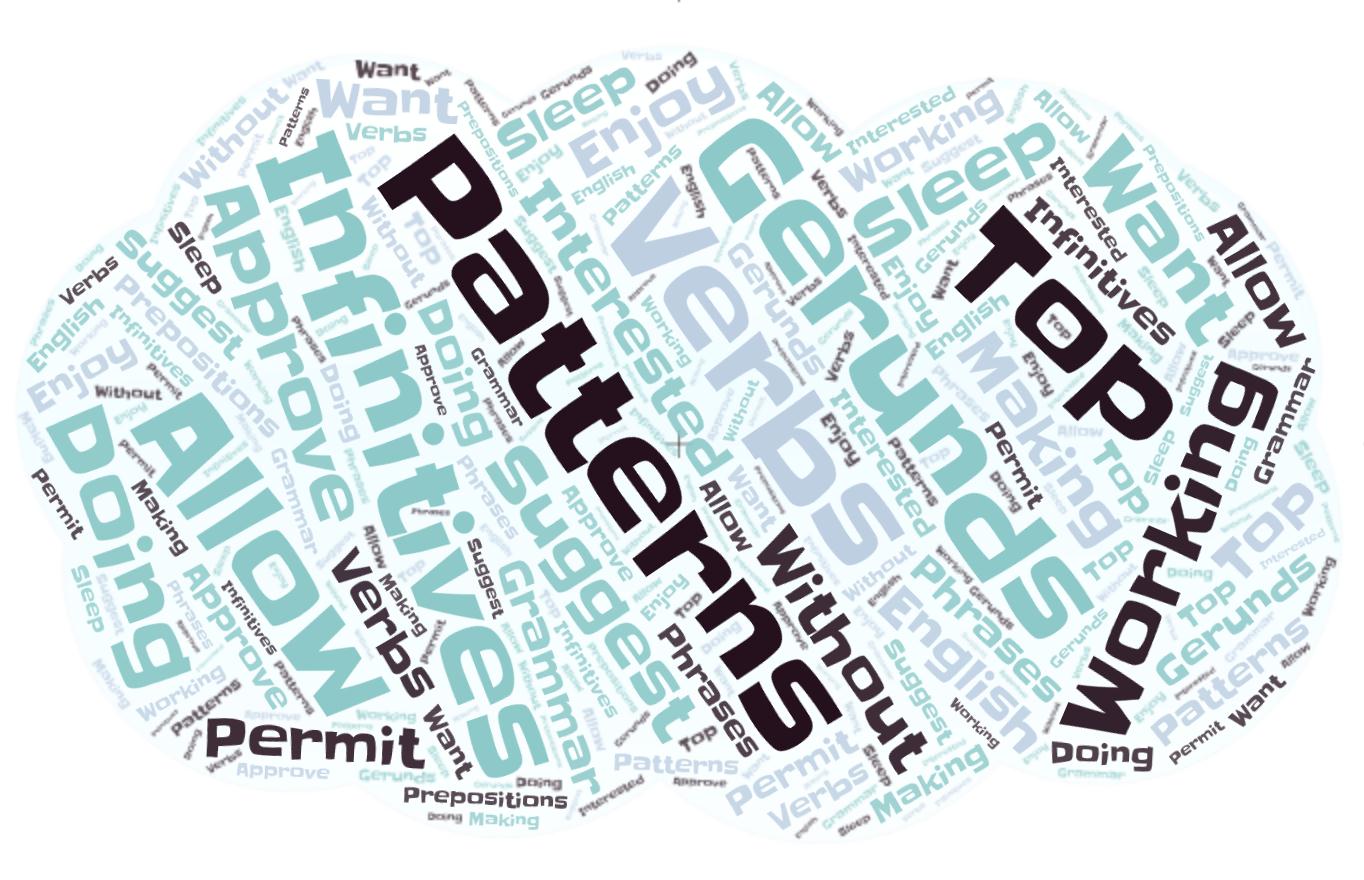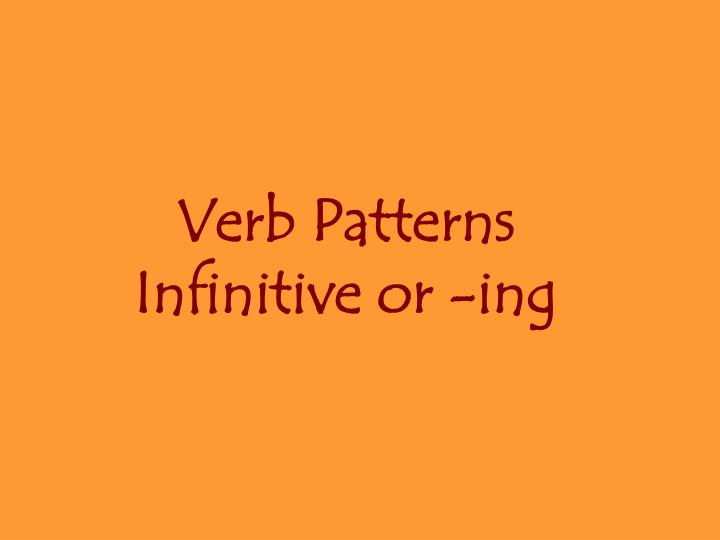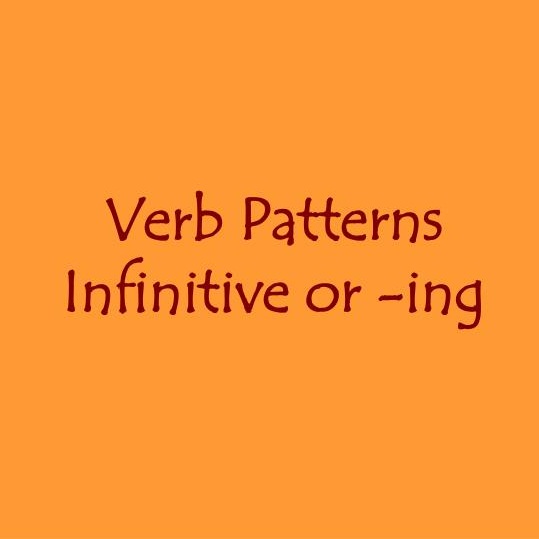Verb Patterns

To be or not to be?
Doing or not doing?
That is the question…
Have you ever thought why in English we sometimes use ‘to+verb’ or ‘verb+-ing’? Well, there are no rules as to what verb form to use after a certain verb or phrase or even an adjective. That is why they are called Verb Patterns – something that we have to remember to speak and write accurately in English. In today’s lesson, let’s look at some words and phrases that are followed by infinitives or -ing forms.
Verb Patterns

Verb + -ing
Many verbs in English can be followed by a verb in the ‘-ing’ form.
Some of these verbs are related in meaning: like, dislike, adore, love, hate, etc.
Prepositions are followed by an ‘-ing’ form, e.g. ‘Are you still interested in joining the club?’
Verb + infinitive
Many verbs in English are followed by an infinitive with ‘to’:
– we use infinitive with ‘to’ after certain verbs including appear, decide, fail, need, offer, refuse, want, wish;
– verbs with future meaning (hope, promise, expect, etc.) are also often followed by the infinitive, e.g. I hope to become a famous person one day;
– after some verb + object phrases, for instance: advise, allow, ask, cause, forbid;
– after some nouns, often as part of a phrase, e.g. It’s time to help;
– after most adjectives, e.g. I was afraid to open the door.
Here’s the list of some verbs and phrases that are followed by -ing or infinitives:
| Verbs normally followed by infinitive with to | Verbs normally followed by -ing | Verbs followed by infinitive without to | Verbs followed by an object and to |
| · agree
· appear · arrange · attempt · ask · choose · dare · decide · demand · deserve · expect · fail · grow · happen · hope · hurry · learn · long · manage · neglect · offer · pay · plan · pledge · pretend · promise · refuse · resolve · seek · seem · struggle · swear · threaten · vow · want · wish |
· appreciate
· avoid · contemplate · delay · deny · detest · dislike · endure · enjoy · escape · excuse · face · fancy · finish · involve · mention · mind · miss · postpone · practise · resent · risk · suggest · burst out · it’s no good use · feel like · give up · keep on · leave off · put off · spend/waste time |
· help
· make · let |
· advise
· assist · beg · bribe · command · dare · employ · enable · encourage · instruct · invite · lead · order · persuade · select · send · teach · tell · train · urge · warn |
Test Yourself
Some verbs, however, can be followed by both -ing forms and infinitives. There are often important differences of meaning.
Multiple choice quiz
Now, let’s get down to some practice. Choose the correct verb forms. (Which sentences can have more than one answer? How does the meaning change? Can you think of the context where each option would be possible?)


Leave a Reply